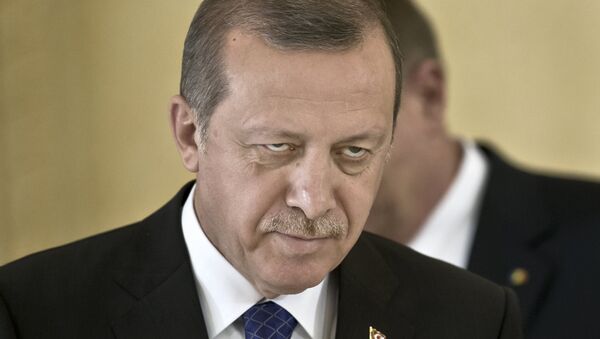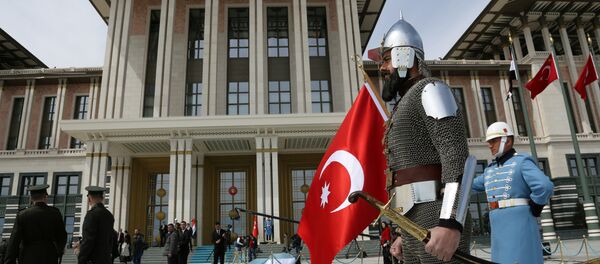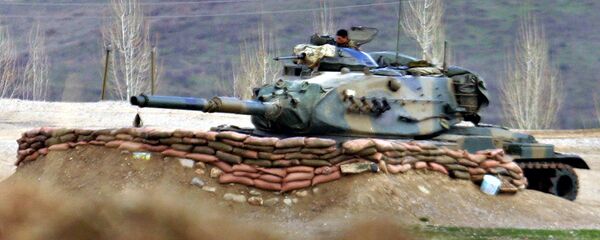"It projects power, especially, in the old Ottoman provinces that constitute the states of Iraq and Syria today," Xulam said.
He noted that US policymakers did not seem to realize their support for Turkish policies toward Syria and Iraq would not bring peace and stability because Erdogan was determined to destroy the state structures in both.
"A prone Syria and Iraq may be a cause for concern elsewhere, but not in Ankara. Annexations may not be its stated policy, but dependencies are part and parcel of its long-term plans," Xulam explained.
Erdogan wanted to create a regime in Syria subservient to Ankara that reduced the security and status of the country’s traditional minority communities, Xulam warned.
"In Syria, Ankara wants an Islamic government that is dominated by Sunni Muslims. The Kurds, the Alawites and the Christians would be its second-class citizens," he asserted.
The Turkish government has a separate long-term strategy to prevent the re-establishment of effective national control by the Iraqi government, Xulam continued.
"In Iraq, the Shiite majority is an impediment. But the insurgent Sunnis can be given ‘moral’ and material support to check the influence of Baghdad in places like Mosul and Anbar province," he stated.
"The Kurds are fighting for a place of their own under the sun. They think the status quo is unacceptable… If I have to bet, I would say: when the dust settles, we will have a new baby called the state of Kurdistan in the Middle East," Xulam concluded.
Retired US Army Judge Advocate General Major Todd Pierce, an expert on guerilla war, told Sputnik that Erdogan hoped to take advantage of Syria’s weakness and chaotic conditions to seize as much territory as possible.
"The hope of the neighbours of course is to strip Syria of as much territory as possible," Pierce said.
Turkey was trying now to follow in the footsteps of Britain and France when they seized many of the prime territories in the Middle East after World War I, Pierce explained.
"The opportunity is there again for a land grab. This time it is by neighbours; last time, with the breakup of the Ottoman Empire, it was the colonialist powers, Britain and France [in 1919-21]," he said.
The borders drawn up in the region began the entire process that is driving the current wars in the region, Pierce concluded.



